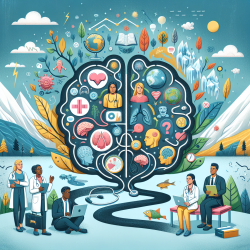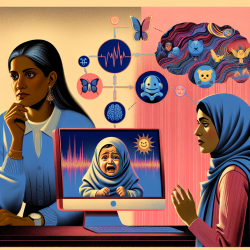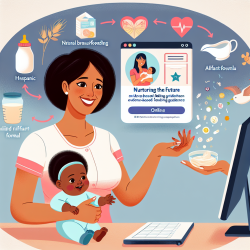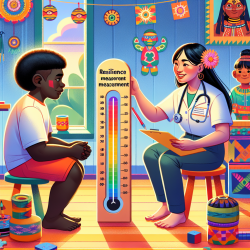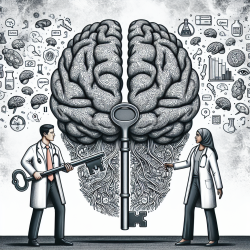Introduction
As practitioners in the field of speech-language pathology, it is imperative to stay informed and adaptable to emerging global challenges that impact our practice and the well-being of our clients. One such challenge is climate change, which has far-reaching implications for health and education. A recent research article, "The Unique Role of Medical Students in Catalyzing Climate Change Education," highlights the importance of integrating climate change education into medical curricula. Although the focus is on medical students, the insights can be valuable for speech-language pathologists (SLPs) and educators who are dedicated to improving outcomes for children.
Understanding the Research
The research underscores the critical role that medical students play in advocating for the inclusion of climate change content in medical education. This advocacy is essential for preparing future healthcare providers to address the health impacts of climate change. The article outlines a model for integrating climate and health content into pre-clinical medical education, emphasizing the disproportionate effects on vulnerable populations and the need for systemic change.
Applying Insights to Speech-Language Pathology
SLPs can draw parallels from this research to enhance their practice and curriculum. Here are some actionable insights:
- Advocate for Curriculum Change: Just as medical students are pushing for curriculum changes, SLPs can advocate for the inclusion of environmental health topics in their training programs. Understanding how environmental factors affect communication disorders can lead to more comprehensive care.
- Focus on Vulnerable Populations: Climate change disproportionately affects vulnerable populations, including children with communication disorders. SLPs should be aware of these impacts and tailor interventions to address the unique needs of these groups.
- Interdisciplinary Collaboration: The research highlights the importance of interdisciplinary approaches. SLPs should collaborate with other healthcare professionals to address the multifaceted challenges posed by climate change.
- Promote Awareness and Education: Educating clients and their families about the potential impacts of climate change on communication and cognitive development can empower them to take proactive measures.
Encouraging Further Research
While the research provides a strong foundation, there is a need for further studies to explore the specific impacts of climate change on communication disorders. SLPs can contribute to this body of knowledge by conducting research and sharing findings with the broader community.
Conclusion
Incorporating climate change education into speech-language pathology practice is not just about staying current with global trends; it is about preparing for the future and ensuring that we provide the best possible care for our clients. By taking inspiration from the efforts of medical students, SLPs can lead the way in integrating environmental health into their practice and education.
To read the original research paper, please follow this link: The Unique Role of Medical Students in Catalyzing Climate Change Education.
